90% Geneva pledges are loans, not aid
Finance minister spills the beans; revival of loan talks with IMF not in sight
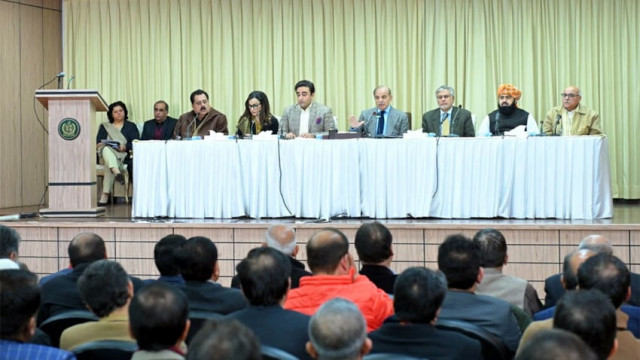
As the international community has given over $8 billion or 92% of the total pledges in project loans for the flood-hit areas at a donors conference in Geneva, the government still does not have a firm date for the International Monetary Fund’s (IMF) visit due to differences over the mini-budget and increase in energy tariff.
The proceedings of Prime Minister Shehbaz Sharif’s news conference at the PM’s House on Wednesday confirmed that if the government is keen to revive the IMF programme, it will have to bite the bullet by imposing new taxes and increasing electricity and gas tariff.
Where the “unprecedented pledges” of $9.7 billion have given a clarity on the $16.3 billion reconstruction plan of the flood-affected areas, the government still seems struggling to address other pressing issues in hand -- how to avoid default.
While addressing the news conference, both Prime Minister Shehbaz Sharif and Finance Minister Ishaq Dar could not announce a date for the staff-level visit of the IMF to begin negotiations for the 9th review of the $6.5 billion bailout package.
The reason for not giving a date was a long list of demands that the global lender has handed over to Pakistan this week, including imposition of 17% sales tax on petroleum products, withdrawal of sales tax exemptions to exporters and levy of federal excise duty on cigarettes and beverages.
While responding to a question, the finance minister said that he had a detailed meeting with the IMF team on the sidelines of the Geneva moot where he managed to “narrow down” some of the demands by them that include power sector reforms, gas and energy prices and covering gap in tax collection.
In December, the FBR had sustained Rs225 billion shortfall in the tax collection, which in the view of the IMF cannot be recovered in the remainder period of the current fiscal year.
But the finance minister said that the gap in the revenue collection was a result of a high court ruling, invalidating 10% super tax imposed by the government in June last year. He said his team informed the IMF that Pakistan could recover the revenue shortfall in a staggered manner after the Supreme Court ruled on the super tax. “We are not changing the fiscal budget target (of Rs7.470 trillion) and we will achieve it,” he asserted.
Against the Rs7.470 trillion tax collection target the sources said that the IMF has anticipated a Rs420 billion shortfall. “On the safer side, the IMF wanted that the government should take fiscal measures and cut back some subsidies,” revealed Dar.
“We have identified some fiscal measures,” said the finance minister but hastened to add, “There will be no burden on the common man.”
“They [fiscal measures] will be very targeted and categorical,” he assured.
Dar confirmed that the IMF had also issues with unbudgeted subsidies given to exporters and farmers and some other subsidies, which it now wants to be backed by fiscal measures.
The sources said that the annual impact of electricity subsidy to exporters, who own jets, was Rs118 billion while another Rs28 billion was the cost of the subsidy for farmers. The Rs65 billion impact of the fuel price adjustment has also not been budgeted.
The sources said that the IMF had informed Pakistan to trigger the contingency measures that it had promised to take in case of a shortfall in revenues.
The government has committed to increase sales tax on all petroleum products, withdraw GST exemptions, including on beverages and other unwarranted exemptions, such as those benefiting exporters. There is also a demand to further increase the federal excise duty on cigarettes.
In addition to that, the government is already in the process of imposing a flood levy on imports and income levy on the foreign exchange earnings of the commercial banks. “We will take two to three measures, which also include flood levy”, said the finance minister.
Pakistan gross official foreign exchange reserves have depleted to mere $4.5 billion --- not sufficient to meet even its one-month external financing needs.
Dar also revealed that almost 90% of the pledges made by the international community at the Geneva conference for flood-hit Pakistan were project loans that will be disbursed over the next three years. “Out of total $9.7 billion, over $8 billion are in project loans.”
The project loans, include $4.2 billion commitment from the Islamic Development Bank, $500 million by the Asian Development Bank, $1 billion by the Asian Infrastructure Investment Bank, and $2 billion by the World Bank, he added.
“I am not incorporating the pledge made by the Saudi Development Fund on purpose here because it is not clear whether their announcement of $1 billion was a loan or a grant,” Dar said.
The prime minister said that we should not indulge into debate whether the pledges were loans or grants and added the money should be used for the rehabilitation of the flood-affected areas.
Responding to a question on how soon he expects the pledges to turn into actual inflows, the prime minister said that depended on “us”. “The faster we can design and create feasibilities and impress them, the faster these pledges will materialise.”
Dar said that the government will meet the remaining $8 billion financing requirements through the federal and provincial development budgets. “After $9.7 billion pledges, the average per annum needs will be met from domestic sources come around Rs650 billion that we can comfortably meet,” said Dar.
At the outset of the briefing, the prime minister vowed that the government would utilise “every penny” of the pledges made by the international community for the prosperity and rehabilitation of flood-hit people, which according to him would be materialized in the next three years.
“Be it bilateral or multinational donation, a sum of $9.7 billion is the total amount that was pledged by the bilateral donors and multilateral,” said the Finance Minister.
Giving a breakdown of the amount pledged at the conference, the prime minister said Saudi Arabia committed $1 billion followed by China $100 million, Qatar $25 million, Canada $18.6 million, Denmark $3.8 million, European Union €87 million, France €380 million, Germany €84 million, Italy €23 million and Azerbaijan $2 million.
The premier said that the unprecedented pledges showed respect for Pakistan, adding the countries would never have committed the amount had there been reservations over financial irregularities.
“Those who hatched propaganda against the government have gotten the answer,” he said in an indirect reference to opponents of the coalition government.
He maintained that the world leaders trusted the incumbent coalition government, adding “it is now upon us to utilize the amount on infrastructural development and for the development of other important sectors”.
The prime minister also thanked Saudi Crown Prices Mohammed Bin Salman for announcing intentions to deposit additional $2 billion in the State of Bank of Pakistan (SBP).
Talking about tackling climate challenges, the prime minister said the government was aware of the globally changing circumstances as reconstruction process will have to be robust and resilient through modern technology.
He told journalists that every penny will be spent in a very transparent manner, while “a third-party audit will be conducted” to ensure transparency of the process.
In his address, Foreign Minister Bilawal Bhutto Zardari termed the prime minister’s foreign policy “successful”, saying the government achieved “two targets with a single shot”. “When I say we achieved two targets simultaneously, it means we also dispelled a myth that Pakistan is isolated.”

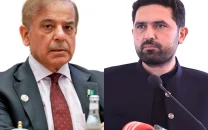


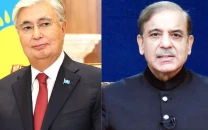
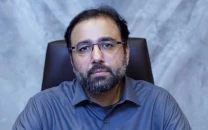
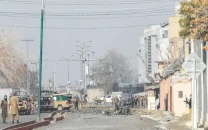












COMMENTS
Comments are moderated and generally will be posted if they are on-topic and not abusive.
For more information, please see our Comments FAQ